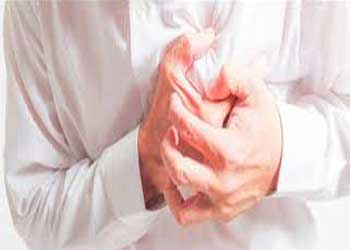- Home
- Editorial
- News
- Practice Guidelines
- Anesthesiology Guidelines
- Cancer Guidelines
- Cardiac Sciences Guidelines
- Critical Care Guidelines
- Dentistry Guidelines
- Dermatology Guidelines
- Diabetes and Endo Guidelines
- Diagnostics Guidelines
- ENT Guidelines
- Featured Practice Guidelines
- Gastroenterology Guidelines
- Geriatrics Guidelines
- Medicine Guidelines
- Nephrology Guidelines
- Neurosciences Guidelines
- Obs and Gynae Guidelines
- Ophthalmology Guidelines
- Orthopaedics Guidelines
- Paediatrics Guidelines
- Psychiatry Guidelines
- Pulmonology Guidelines
- Radiology Guidelines
- Surgery Guidelines
- Urology Guidelines
Lung ultrasound-guided diuretic treatment effectively reduces lung congestion in HF

Spain: Lung ultrasound (LUS)-guided treatment may be an inexpensive, noninvasive, and safe approach to guide pulmonary congestion treatment in heart failure (HF) patients, according to a recent study published in the European Journal of Heart Failure.
According to the study, tailored LUS-guided diuretic treatment of pulmonary congestion reduced the number of decompensations and improved walking capacity in patients with HF.
Pulmonary congestion is the most important cause of hospital admission in heart failure patients and therefore is a primary goal of acute therapy. However, the clinical assessment of pulmonary congestion is limited by the low specificity and sensitivity of physical examination. Among the widely used procedures, lung ultrasound has emerged as a simple, non-invasive and semi-quantitative tool for the detection of pulmonary congestion. But no randomized trial to date has investigated whether an assessment of pulmonary congestion by LUS may help to guide treatment in patients with HF and to improve their prognosis.
Alessandro Sionis, Universitat Autónoma de Barcelona, Barcelona, Spain, and colleagues conducted this study to evaluate whether an LUS‐guided follow‐up protocol improves the outcomes of patients with HF.
In this single-blind trial, 123 patients (mean ± standard deviation (SD) age of the patients was 69 ± 12 years and 72% were male) admitted for heart failure were randomized to receive either a standard follow-up (n = 62, control group) or a LUS-guided follow-up (n = 61, LUS group). visits were scheduled at 14, 30, 90 and 180 days after discharge.
The primary endpoint was a composite of urgent visit, hospitalization for worsening HF and death during follow‐up.
Read Also: Lung ultrasound reduces readmission in patients with acute heart failure
Key findings of the study include:
- The mean ± SD left ventricular ejection fraction was 39 ± 14%.
- The hazard ratio for the primary outcome in the LUS group was 0.518, mainly resulting from a decrease in the number of urgent visits for worsening HF.
- The number of patients needed to treat to avoid an event was 5.
- Other secondary endpoints such as N‐terminal pro‐B‐type natriuretic peptide reduction were not achieved.
- The safety parameters were similar in the two groups.
- Patients in the LUS group received more loop diuretics [51 (91%) vs. 42 (75%)] and showed an improvement in the distance achieved in the 6‐min walking test [60 m vs. 37 m (interquartile range: 5–70 m)].
Read Also: Lung Ultrasound better than X-ray chest for detecting Pulmonary edema
"This is the first randomized clinical trial to evaluate the utility of LUS to guide the post-discharge follow-up of patients hospitalized for HF," wrote the authors. "Its data show that an LUS-guided strategy significantly improved the combined endpoint of urgent visit, hospitalization for worsening HF and death during a 6-month follow-up in patients after HF admission. This effect was mainly attributable to a decrease in the number of urgent visits."
The study, "Lung ultrasound‐guided treatment in ambulatory patients with heart failure: a randomized controlled clinical trial (LUS‐HF study)," is published in the European Journal of Heart Failure.

Disclaimer: This site is primarily intended for healthcare professionals. Any content/information on this website does not replace the advice of medical and/or health professionals and should not be construed as medical/diagnostic advice/endorsement or prescription. Use of this site is subject to our terms of use, privacy policy, advertisement policy. © 2020 Minerva Medical Treatment Pvt Ltd